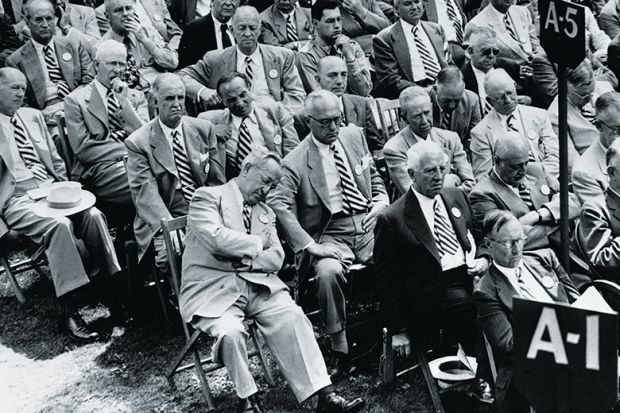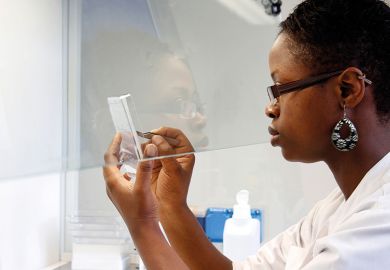The new memberships of five research councils announced by UK Research and Innovation have been criticised for their “worrying” lack of diversity.
UKRI, which took on its responsibilities as the umbrella body for the UK’s research councils on 1 April, is appointing new boards for its nine constituent bodies. So far it has confirmed the membership of five: the Arts and Humanities Research Council, the Biotechnology and Biological Sciences Research Council, the Medical Research Council, the Science and Technology Facilities Council and Innovate UK.
Welcoming the new council members, who form teams of between 10 and 14 people per council, UKRI chief executive Sir Mark Walport said that the “diversity of their personal backgrounds, experience and expertise will ensure that we make the very best choices in how to invest wisely in research and innovation, and develop capability and capacity for the future”.
But, with just five council members from black or minority ethnic backgrounds out of a total of 57 confirmed candidates, UKRI has been accused of failing in its recruitment duties.
Kalwant Bhopal, professor of education and social justice at the University of Birmingham, said the failure to ensure diverse representation on the panels was “completely unacceptable”.
“I'm completely shocked by the lack of diversity,” she said. “These groups do not represent the people who will be applying for research funding from them. They do not represent the academic body, which is still not that diverse but it is better than this."
AHRC and BBSRC fare particularly badly, each with a 100 per cent white British line-up. The STFC lists just one BME candidate, as does the MRC, despite being the only council so far to show equal gender balance. Meanwhile, Innovate UK includes three BME panellists.
According to UKRI, all panel appointments are based on merit, recommended to the UKRI board by the executive chair of each council.
Individuals' responsibilities include prioritisation of budgets within their remit and making decisions on issues delegated by the UKRI board. Each appointee receives an annual remuneration of £6,850 for their position.
“These individuals are in such positions of power and the lack of diversity on the panels is worrying,” Professor Bhopal added.
She also criticised the low numbers of representatives from post-92 universities on the list of appointments.
A UKRI spokeswoman said UKRI “places great value on diversity of perspectives in our leadership and decision-making bodies as it does throughout career structures”.
“We will therefore actively be looking to increase diversity and breadth of perspectives on councils,” she said. “We will also be focusing on equality, diversity and inclusion as well as engagement of the councils across sectors to contribute to improving diversity in recruitment, retention, development and progression in the careers and organisations we fund.”
The UKRI board has requested that it look at ways in which BME diversity can be improved, the spokeswoman said, particularly with regard to remaining vacancies on the councils.
Register to continue
Why register?
- Registration is free and only takes a moment
- Once registered, you can read 3 articles a month
- Sign up for our newsletter
Subscribe
Or subscribe for unlimited access to:
- Unlimited access to news, views, insights & reviews
- Digital editions
- Digital access to THE’s university and college rankings analysis
Already registered or a current subscriber? Login








